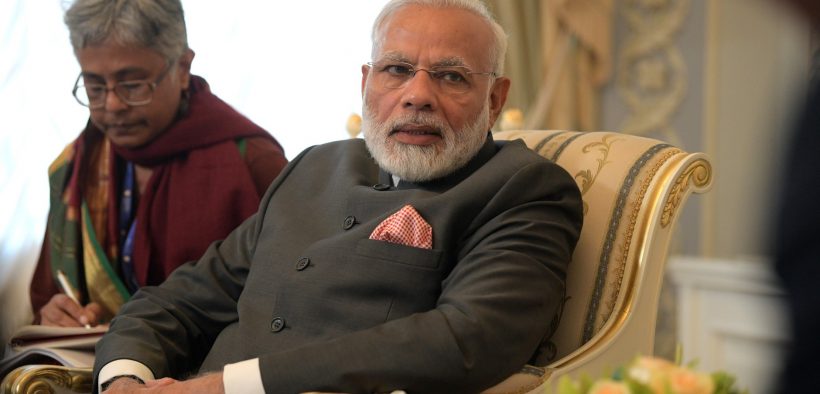Strongman In India Wins Reelection With Sweeping Results

The incoming results mark the end of the worlds largest democratic process and paint a troubling picture for those who are concerned with the state of human rights.
“I don’t want to color the decision of the people of India and to get into what went wrong,” said India National Congress (INC) party President, Rahul Gandhi during a news conference at his party’s HQ after the Social Democratic party conceded defeat in the Indian Lok Sabha (House of the People) elections. “The people of India have decided that [Prime Minister] Narendra Modi [BJP] will be the next prime minister.” He would go on to continue. “Today is not the day to go into details of this mandate. Today is the day we wish him all the best and hopefully, he will look after the interests of this country.”
The incoming results mark the end of the worlds largest democratic process and paint a troubling picture for those who are concerned with the state of human rights within India.
“One candidate for Parliament, in particular, illustrates the growing extremism of the BJP. In Bhopal, a city of 1.8 million people, Modi personally endorsed Pragya Singh Thakur, who is out on bail after almost nine years in jail for alleged involvement in a terrorist bombing that killed six Muslims,” the Nation reported on the concerns of anti-Muslim sentiment within the BJP. While she denies any involvement, her sentiments against Islam are clear.
“I climbed atop the structure and broke it, and I feel extremely proud that God gave me this opportunity,” she bragged at her campaign launch, basking over the destruction of a 16th-century mosque 27 years ago.
BJP’s Ties To Hindutva
Modi and Thakur are both proponents of the far-right wing anti-Muslim Hindutva (Hindu Nationalist) ideology, whose founders corresponded with Adolf Hitler and Benito Mussolini to model their movement on fascist lines. Dibyesh Anand analyzed the reelection of Prime Minister Modi in the Independent.
BJP’s record in 2015-2019 has been divisive to say the least. The party has marginalized religious minorities, especially Muslims, from public life with many, as a result, being lynched by Hindu nationalists in the name of “cow protection”. They have incarcerated dissidents accused of being “urban Maoists”, created a cultural revolution of their own by Hinduising the bureaucracy and media; and crushed the seeds of progressive movements in universities, cultural institutions and on the streets.
Robert McCaw Director of Government Affairs Department at Council on American-Islamic Relations (CAIR) criticized Prime Minister Modi in an interview with Citizen Truth earlier in the year due to his role in the 2002 Gujarat riots which left between an estimated 1,000 – 2,000 dead; most estimated to have been Muslim. Human Rights Watch (HRW) commented on the riots in February 2012.
Authorities in India’s Gujarat state are subverting justice, protecting perpetrators, and intimidating those promoting accountability 10 years after the anti-Muslim riots that killed nearly 2,000 people, Human Rights Watch said today. The state government has resisted Supreme Court orders to prosecute those responsible for the carnage and has failed to provide most survivors with compensation. The violence in Gujarat started on February 27, 2002, when a train carrying Hindu pilgrims was attacked by a Muslim mob and caught fire, killing 59 people. In a retaliatory spree by Hindu mobs, hundreds of Muslims were slaughtered, tens of thousands were displaced, and countless Muslim homes were destroyed.
What’s Next In India
At the writing of this article, BJP is expected to win 299 seats in the Lok Sabha, far more than the 272 required for a majority. Their main rival INC is only expected to hold 51 seats after the election.
With the Hinduvta and the larger Rashtriya Swayamsevak Sangh (RSS) movement, it was born from taking a firm grip on Indian politics, it is a troublesome time for religious minorities; especially Muslims in India. While the country continues to struggle economically and has decreasing social rights under BJP, the reelection of Modi sends a harsh sign to INC. The party will have to reformat their strategy if they are to have a better showing in five years.













